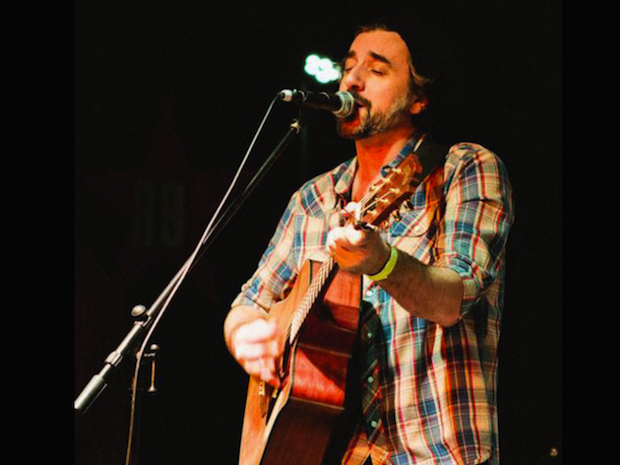 Image via flypaper.soundfly.com
Image via flypaper.soundfly.com
This article originally appeared on Soundfly.
There's this idea out in the world that unless we're working as songwriters and doing music full-time – music solely – we've somehow failed or compromised our integrity as artists. I've come to understand this notion as flawed thinking.
Let me explain. I've been writing, releasing, and performing music since the drummer in a burgeoning (but god-awful at the time) alternative rock band called Surreal, comprised of students at my high school, tracked me down at a local amusement park where I was flipping burgers. He told me he knew I could sing, "was in chorus," and asked me to play a show. I was 16 or so. I played the show with Surreal and a thousand more in myriad musical outfits and solo projects over the course of the next two decades. And while I gave up the gig at Adventureland, I never stopped working while performing and developing a career in music.
I'm an educator. I spend most of my days working with students – young readers and writers and meaning-makers in public school classrooms. I've been doing this for 18 years. I've worked in urban and suburban environments, traditional and nontraditional settings, and everything in between. This steady space to think and be during mostly daylight hours for a good chunk of the calendar year has provided a framework for my art. Many of us know that Sting was a teacher once, back in his early days, as was Sam Beam. And so many others, too. Major artists and songwriters of our time all had professions other than the one that brought them into our lives.
The common thinking is that we do other things until we hit it big, either through luck or hard work or most likely a combination of both. I've started to think that perhaps there is tremendous efficacy in maintaining a kind of hyphenated existence that weaves the "other" job with the art, so that the line separating the two starts to fade away.
Here are a few reasons songwriters should not quit their day jobs.
1. One informs the other
In other words, we need the stuff of life in order to write. We need to see conflicts between people at a workplace, suffering, joy, complexity with regard to balancing time. How can we write a love song if we've never let ourselves love and love dangerously? We need the whimsy and the heavy – all of it is fodder for songwriting. We need the humanity. The more we live in the world, the richer our songwriting will be. And subsequently, we need to write in order to make sense of the world.
2. One feeds – literally – the other
Multiple incomes help us sustain our ideas. And having different sources of income, interestingly, allows for fewer compromises to be made. All of a sudden, the time spent in the studio, touring on the road, etc. is on our terms, which is essential when taking risks (which is necessary for lasting art).
3. Our network grows
I've been blessed by having students interested in the music and art that I make. Many of them have helped shape it. Our time spent learning together has informed what I write and put out in the world, and when I'm lucky, they have the curiosity to look into that world from time to time. It never ceases to amaze me when, on summertime tours promoting the new album in Chicago or Boston or anywhere else in North America, I'll look out across the room and see a former student or colleague. Our "other jobs" can provide new audiences for our work – not in an opportunistic and self-gratifying way, but more so in this authentic way with regard to how we go about our business in the world, which is a great way to form relationships in art or otherwise.
The songwriter in the world. The activist mom who works for a nonprofit and crafts thoughtful and intricate collections of folkie jazz. The badass pianist/physical therapist, the copy editor vaudevillian singer. I know a few of them for sure. Sure, there are limitations and challenges to this kind of dual life, and it's certainly not for everyone. (I can certainly tell you about how the heart sometimes is left on the road traveling with my friends and fellow music-makers who do this thing beautifully, miraculously, full-time, but that's another conversation altogether.) If we're doing what we love and contributing to the goodness in the world, I have to imagine our art will be better for it.
Next up:
- How to Balance Your Day Job With Your Music Career
- 7 Questions to Ask Yourself Before You Quit Your Day Job for Music
- What These Full-Time Musicians With They Knew Before Quitting Their Day Jobs
- 4 Signs It's Time to Quit Your Day Job and Do Music Full-Time
Alan Semerdjian is a musician, educator, and guest contributor to Soundfly.







